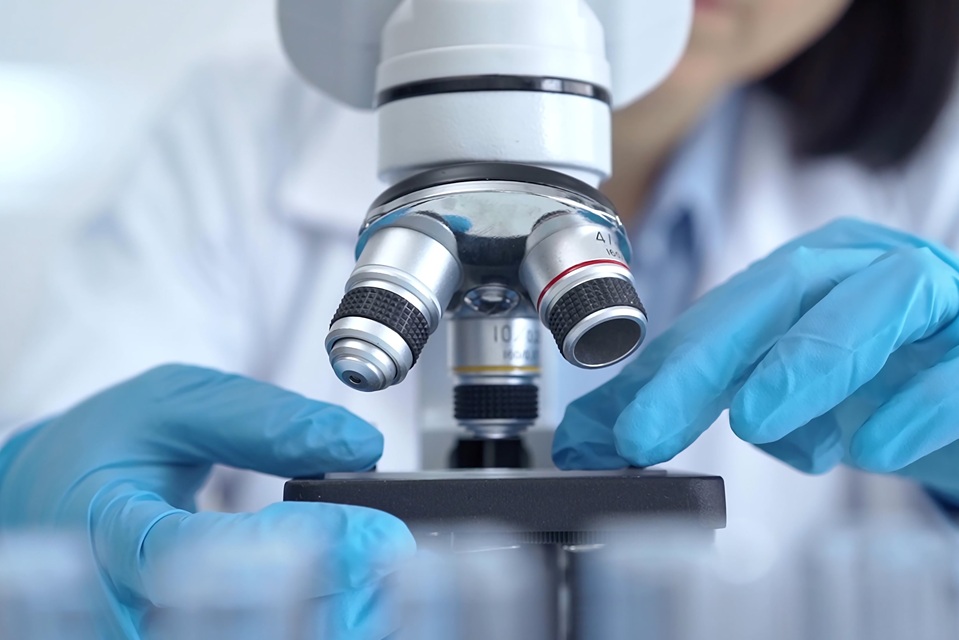Researchers reveal how changes in prostate tissue could indicate cancer

Scientists at Keele University have revealed for the first time that certain changes in prostate tissue - namely calcification - could be an indicator of cancer aggressiveness, offering a potential new method for doctors to test patients.
Calcification refers to a build-up of calcium deposits in the body’s soft tissues like muscles or organs, where it doesn’t normally belong, which can cause adverse effects.
Working with Cancer Research UK, the research team have demonstrated for the first time that calcification of prostate tissue correlates directly with other clinical markers for prostate cancer, meaning that calcifications could be a marker for doctors to look for when testing for cancer. Their findings are published in the journal Scientific Reports.
The researchers have said there is an urgent need for an agreed or standardised method to test for prostate cancer, because the uncertainty caused by different testing methods means that treatment plans can be unclear, or less effective for certain patients.
Many men with high-risk disease are undertreated, particularly older men and those from low socioeconomic backgrounds, while a high percentage (92–98%) of men with low-risk disease are over-treated, for example with radical surgery; an operation that removes a tumour plus surrounding tissue and lymph nodes.
Current diagnostic and prognostic methods also contribute to differences in treatment, with prostate specific antigen (PSA) testing having a high rate of false positive results (75%) and often giving inconsistent results with MRI scans in 15–20% cases.
The researchers studied prostate tissue using the Diamond Light Source synchrotron in Oxford and found that the chemical make-up of calcifications correlated with other clinical indicators of prostate cancer, highlighting that analysing calcifications could be a viable option for identifying cancer aggressiveness, which would in turn lead to more effective and appropriate treatment plans.
Dr Charlene Greenwood, Senior Lecturer in Analytical Chemistry and Forensic Science who led the research, said: “Our findings mark an important step forward in understanding how subtle changes in the tissue microenvironment, including calcifications, can be used to improve how we detect and assess prostate cancer. By uncovering these links, we hope to support the development of more reliable diagnostic methods that could ultimately lead to better outcomes for patients.”
Dr Sarah Gosling, a Research Associate from Keele’s School of Chemical and Physical Sciences, added: “This work has started to demonstrate the potential of prostate calcifications as disease markers and draw links between prostate and breast cancer. The study also further supports the idea that calcifications reflect changes in the surrounding tissue and may have potential uses in other tissues.”
The research was conducted by academics and technicians from Keele’s Schools of Chemical and Physical Sciences, and Medicine, along with colleagues from Cranfield and Exeter Universities, Robert Jones and Agnes Hunt Orthopaedic Hospital NHS Foundation Trust, Gloucestershire Hospitals NHS Foundation Trust and Diamond Light Source.
Most read
- Keele-led partnership to lead multi-million pound research initiative to transform mental health support
- New debate series to explore societal challenges affecting universities
- Keele researchers selected for prestigious USA exchange programme
- Keele University launches pioneering green hydrogen generation hub
- Keele celebrates graduation of its first fully qualified paramedics
Contact us
Andy Cain,
Media Relations Manager
+44 1782 733857
Abby Swift,
Senior Communications Officer
+44 1782 734925
Adam Blakeman,
Press Officer
+44 7775 033274
Ashleigh Williams,
Senior Internal Communications Officer
Strategic Communications and Brand news@keele.ac.uk.



